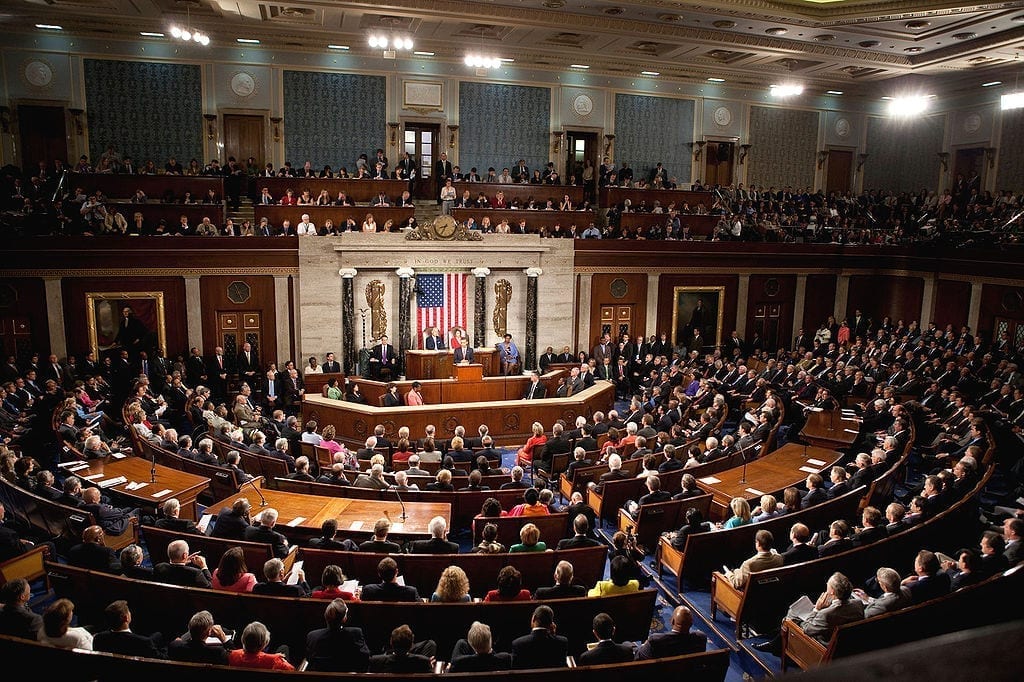Have you ever known someone who promises one thing and delivers another? It’s pretty disappointing, isn’t it? You wouldn’t buy a bag of chips expecting to find it full of leaves when you get home. Most folks would go back and demand a refund if that happened. Yet, this is exactly what is happening with some legislation working its way through Congress. Compared to what people really want, what our legislators deliver leaves much to be desired. It’s enough to make one wonder who really employs Congress: people like you and me, or corporations and big money?
Have you ever known someone who promises one thing and delivers another? It’s pretty disappointing, isn’t it? You wouldn’t buy a bag of chips expecting to find it full of leaves when you get home. Most folks would go back and demand a refund if that happened. Yet, this is exactly what is happening with some legislation working its way through Congress. Compared to what people really want, what our legislators deliver leaves much to be desired. It’s enough to make one wonder who really employs Congress: people like you and me, or corporations and big money?
If there’s any economic mover both major parties consistently court, small business is it. Although Republicans repeatedly sniped at former President Obama’s policies, he left the business community in reasonably good shape, considering where they were when he started. Now Trump, himself a businessman, has the opportunity to shape policy. One might expect that he’d get to work with Congress to craft the policies that small businesses especially want. He was, after all, their guy.
Joanne Doroshow, Executive Director at the Center for Justice & Democracy at New York Law School, says this isn’t happening. She takes part in research efforts to determine what issues and policies are of most concern to small business interests. Time after time, small businesses rank “fear of lawsuits” near the bottom of their lists of concerns and challenges. In poll results released by the Center for Justice & Democracy this month, members of the National Federation of Independent Business ranked “Cost and Frequency of Lawsuits/Threatened Lawsuits” 68th on a list of 75 issues that are of concern to their businesses. Answering the question about which issues they believe Congress and President Trump’s administration should address first, only 1% of the responding members of the National Small Business Association chose “tort reform” from a list of possible concerns.
So, once Trump got through the obligatory initial phase of socially conservative executive orders, what’s next in the administration’s priorities? Surprisingly, or maybe not, tort reform is near the top of the list. Upcoming bills would make it much harder for individuals and small businesses who have been harmed to recoup damages. Who really employs Congress? Perhaps if we follow the money, we’ll find the answers.
What priorities topped the list of concerns for small business? The top concern of the National Small Business Association was reining in the costs of health care. The NSBA’s health care wish list includes reducing the cost of insurance and providing universal coverage.
These poll results echo what everyday citizens from coast to coast also worry about. The threat of losing coverage is making many people appreciate the ACA more than ever before. Even those who voted for Trump as he promised to repeal and replace the ACA worry that he really will leave them without health care. Janice Phelps, a disabled Indiana factory worker and Trump supporter, fears that Medicaid benefits will be cut. “We’re supposed to just roll over and die because we can’t pay it ourselves?” she asked The Guardian recently.

The long-awaited GOP replacement for the old GOP-inspired ACA has little to offer either small businesses or people like Phelps. Like other Republican efforts to privatize a serviceable commons, it consists of tax credits and vouchers. Tax credits do little to assist those who don’t make enough to pay taxes. Likewise, vouchers don’t serve to reduce costs so much as to force sick people to bear more of the burden. Although Tom Price, HHS secretary, claims “nobody will be worse off financially” under the plan, that’s not a viable promise. When people need more care than they can afford, we may end up with more tragedies like this one from last year, when an elderly Florida man shot his wife in her sleep because they could no longer pay for the medicines she needed to relieve her pain and make her life worth living.
When the legislative priorities of individual Americans and small businesses are not Congressional priorities, it behooves us to consider who really employs Congress. He who pays the piper, as they say, calls the tune. Whose tune is Congress playing? Perhaps that’s a question we should all be asking our elected representatives.


Join the conversation!